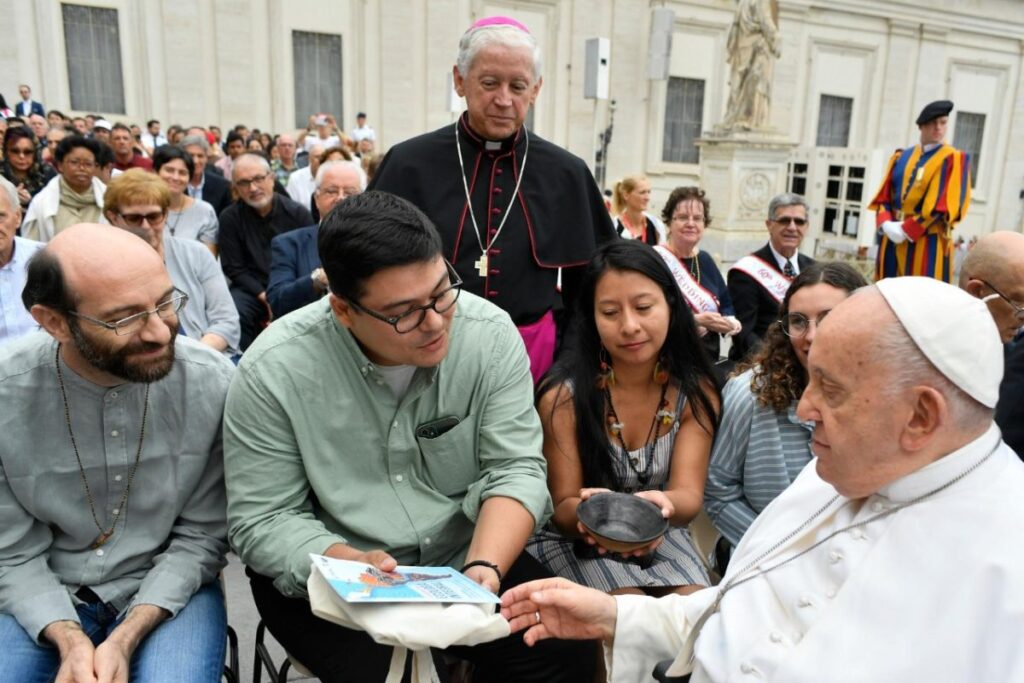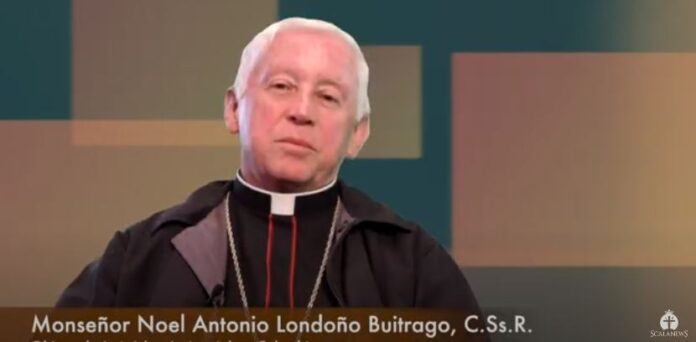Monsignor Noel Antonio Londoño Buitrago, CSsR bishop of Jericó, in the southern area of the Colombian department of Antioquia, on the central mountain range, together with Father Dário Bossi, Comboni missionary in Brazil, advisor to the Brazilian Episcopal Conference and coordinator of the Churches and Mines networkleads the group that visits Madrid, Valladolid and Santiago de Compostela in Spain these days (from 12th to 16th), passing through Rome for the meeting with Pope Francis, at the Dicastery for Integral Human Development and the Commission for Latin America (from 17th to 20th). They will then travel to Brussels for an event at the European Parliament with CIDSE and the Episcopal Conference of the European Union (COMECE) (21st to 24th), and will conclude their commitments with a seminar on memory, coloniality and extractivism at the University of Tübingen in Germany (25 to 30).
In his conversation with the Italian agency SIR, Monsignor Londoño said: “At the beginning, they flew with their helicopters, did their surveys, and said they were studying methods for new crops. But it wasn’t true. Then, once they had the concessions for the mines, they promised wealth and progress. But none of this happened.”
The Redemptorist prelate, since he became bishop ten years ago, has had to become an expert in mining issues, arriving in an area already “occupied” by the South African multinational AngloGoldAshanti, in alliance with the Canadian B2Gold, which exploits gold and copper. A not isolated situation in Latin America.
In Brussels he held a meeting at the headquarters of Comece (Commission of the Bishops’ Conferences of the European Union), in the presence of the secretary general, Father Manuel Barrios Prieto, and representatives of other organizations, such as the Laudato si’ Alliance and the Cisde.

The Latin American delegation shared their experiences which are very similar, given that when intensive extractive activity arrives in a territory, the result is to create a “scorched earth” of other economic activities, causing heavy damage to the environment.
“Just think – continues the Colombian bishop – that there is a municipality of 6 thousand inhabitants, near Jericó, where the mining concessions cover 97% of its territory. Here in Colombia, until 25 years ago, there was no Mining Code. What was then approved was in practice written under the dictation of Canadian multinationals. Many mines are legal, there are permits. But ours, for example, is a very fragile area from a geological point of view. There are no landfills for waste because it would be dangerous. However, digging a cubic kilometer of the mountain can be done without any problems. They promise, offer, and offer again, the local authorities become friends.”
The Church tries to create networks, “we also looked for competent people from an environmental, geological, and legal point of view. One of these people, now, with the change of government, has been appointed to follow the mining licenses, and we hope that some results can be achieved.”
In line with the prophecy of Pope Francis and together with the communities martyred by mining and extractivism in America, the red Iglesias y Minería (RIM) promotes the II Caravan for Integral Ecology.
“Courage, go forward”: Pope Francis receives young people from communities affected by mining activity.
In a message of enthusiasm for the defense of the Common Home, Pope Francis encouraged the young people who make up the Second Caravan for Integral Ecology to follow his prophecy in defense of the communities and Mother Earth martyred by mining activity. “Courage, always move forward,” said the Pontiff. The meeting took place during the general audience held on 20 September 2023 in St. Peter’s Square in the Vatican.
Scala News






